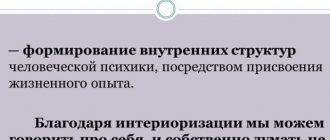Arguments on the topic “CRUELTY” from the novel “QUIET FON” by M.A. Sholokhov
Example 1. Cruelty towards a rival (AKSINYA)
A surge of rage causes Natalya to come to her with a request to leave Gregory. Aksinya mocks Natalya, taking revenge on her like a woman for the fact that she brought her misfortune by marrying Melekhov. She perceives Natalya as a fierce enemy, mercilessly and painfully beats her with cruel words. “Does he need you? Look, your neck is crooked! And do you think he will be jealous of you? He abandoned the healthy one, but will he envy the crippled one? You won't see Grishka! Here's my story! Go!” Aksinya “was fierce, defending her nest, now she struck for everything that happened before” - both for new wrinkles and for her sleepless nights.
Example 2. A cruel person (KORSHUNOV)
Korshunov Dmitry Mironovich - a character in the novel by M.A. Sholokhov "Quiet Flows the Don", a friend of the same age as Grigory Melekhov, his brother-in-law, Natalya's brother. His father, Miron Grigorievich Korshunov, is an elderly Cossack.
Korshunov served the Don Army in the punitive detachment regularly and diligently, he was promoted to sergeant, and then to sub-sergeant. During his service in the detachment, he gained weight and weight. He did not achieve his officer rank through heroism. Other qualities were valued here. “...And Mitka had more than enough of these qualities: not particularly trusting the Cossacks, he himself led those suspected of Bolshevism to execution, did not disdain to deal with deserters with his own hands, using a whip or a ramrod, and in terms of interrogation there were no arrestees in the entire detachment equal, and the military foreman himself Pryanishnikov... said: “No, gentlemen, do as you wish, but it is impossible to surpass Korshunov! A dragon, not a man!.. From under Mitka’s hands more than one convict has never risen alive...”
The cruelty inherent in Korshunov’s nature increased monstrously in the punitive detachment. “...Where the neurasthenic officer, tired of blood and other people’s suffering, could not stand it, Mitka only squinted his yellow eyes, speckled with a small spark, and brought the matter to the end.”
This is how Korshunov became when he ended up in the punitive detachment of military foreman Pryanishnikov, this is how he appeared in his native farm.
Bearing a grudge against Mishka Koshevoy (“They killed my father, they killed my grandfather, but would I have Christed with them?”), Korshunov slaughtered his entire family with his own hands, for which the Melekhovs did not let him into the house. Mitka was also condemned by Ilyinishna, the mother of Grigory Melekhov. “Is it really a Cossack thing to be an executioner, to hang old women and kill innocent children with sabers?!..” His sister also turned away from him. Korshunov left the farm.
Example 3. Cruelty (GRIGORY MELEKHOV, CHUBATY)
In Gregory's hundred, a new constable appears, nicknamed Chubaty, a Cossack of exorbitant strength and cruelty. Horses are afraid of him, and he himself admits that he has a “wolf’s” heart. Chubaty teaches Grigory not to feel sorry for a person: “He is a filthy man... Evil spirits, he stinks on the earth, he lives like a toadstool mushroom.”
The sergeant gives Grigory and the other Cossacks an object lesson in perverted heartlessness. Having volunteered to take the prisoner to headquarters, after a few hundred meters Chubaty, without any reason, cut him in two with a terrible blow. Gregory was shocked by this unnecessary cruelty.
Gregory also treated his wife cruelly, cruelly saying that he did not love her.
Example 4. DARIA MELEKHOVA
The loss of moral purity and inner emptiness lead Daria to outright cynicism and cruelty. For a long time, the Melekhovs cannot forgive Daria for the murder of the defenseless, beaten half to death Ivan Alekseevich Kotlyarov.
I. S. Turgenev “Mumu”
If a person is cruel, then this attitude applies equally to both animals and people. Thus, Ivan Sergeevich Turgenev in his work “Mumu” described a dramatic story, the victim of which was a tiny harmless dog. The only joy of the mute janitor Gerasim was a small beautiful dog, which he rescued from a pond as a puppy and named Mumu. She quickly became the favorite of the entire court, but the capricious and despotic lady did not like the dog, and she ordered Gerasim to immediately get rid of it. She was indifferent to the fact that for the hero the dog meant too much, it was the only creature that he loved with all his heart. The lady was cruel not only towards the animal, but also towards Gerasim, whom she considered her property, a thing with which you can do whatever you want. She treated this way not only towards the sullen janitor, but also towards the entire servant. Indifferently disposing of their destinies according to her own will, she ruined people's lives and broke their hearts. So the writer wanted to show that cruelty cannot be distinguished - if it is in the human heart, it will be directed at all living things.
Cruelty towards a living being cannot remain without consequences. Any manifestation of it changes a person forever; he begins to live in a different coordinate system. When the lady ordered Gerasim to get rid of the dog, he was forced to obey. A huge man of incredible strength resignedly set out to carry out the order of the tyrant lady. Having drowned Mumu, the only creature to whom he was tenderly attached, he fully realized his own powerlessness and meanness towards the dog. This incident left a big imprint on the character and entire future life of Gerasim. Without warning, he went to the village, where he lived completely alone until the end of his days. Having once betrayed his beloved being, he could no longer find a place for love in his heart. These are the consequences of showing cruelty to our smaller brothers, who unconditionally trust people and are completely dependent on them.
Arguments on the topic “CRUELTY” from the story “CAVALRY” by I.E. Babel
Example. TRUNOV
TRUNOV PAVEL is a character in I. Babel’s short story “Cavalry”, squadron commander of the First Cavalry. He is told on behalf of Lyutov in the short story “Squadron Trunov”.
Trunov is cruel and “always started an endless mess with the prisoners.” Lyutov talks about a quarrel with him for this reason.
The squadron once captured ten Poles. “They were in their underwear when we took them. A pile of clothes was lying near the Poles, this was their trick so that we would not distinguish officers from privates by their uniforms... but Trunov decided to find out the truth.”
“Officer, come out!” - he commanded, approaching the prisoners, and pulled out a revolver. One of the prisoners came forward with the words: “The end of that war, all the officers are gone...” Showing the squadron his hands, the Pole, sobbing, said that with these five fingers he raised his family. “The old man choked, swayed... and fell to his knees in front of Trunov.” The squadron commander decided to do a clothing test. “Whoever has to do it is screwed.” He “selected a cap with a piping from a pile of rags and pulled it on the old man.” “It’s just right,” Trunov muttered and shoved a saber down the prisoner’s throat.”
Lyutov began to compile a list of the remaining prisoners, the Cossack Andryushka Vosmiletov helped him, leading each Pole to Lyutov. Frightened, “the prisoners howled and fled from Andryushka, he chased after them and grabbed them in his arms...”.
Lyutov “somehow wrote down eight people, the numbers of their units, the type of weapons and moved on to the ninth.” The ninth was a young man “in a jersey sweatshirt and Jaegerev’s underpants.”
Andryushka Vosmiletov found his underpants suspicious, and he “asked sternly:
—Where did you get the supplies from?
“The uterus was knitting,” answered the prisoner...
“Your uterus is a factory one,” said Andryushka, “our brother didn’t sew one like that...”
He was about to take the ninth prisoner to the others, but Trunov smashed the young man’s skull from twenty steps with a shot from a carbine.
Inhumanity, cruelty - arguments from literature
Types of problem
Inhumanity, cruelty
Arguments
R. Bradbury "Dwarf". Ralph, the hero of the story, is cruel and heartless: he, being the owner of the attraction, replaced the mirror in which the dwarf came to look, consoled by the fact that at least in the reflection he sees himself tall, slender and beautiful. Once again, the dwarf, who expected to see himself the same again, flees with pain and horror from the terrible sight reflected in the new mirror, but his suffering only entertains Ralph.
I.S. Turgenev “Mumu”. Ivan Sergeevich Turgenev is not only a great Russian writer, but also an active defender of the weak, humiliated and disadvantaged. As a small boy, he observed the cruel and unfair treatment of serfs by his domineering landowner mother. Having become a writer, Turgenev tried to express his attitude towards serfdom as honestly and openly as possible on the pages of his works. Reading the story “Mumu”, we get acquainted with the heroes of the events described. This is the “nice guy” Gerasim, and the timid washerwoman Tatyana, and the quick-witted butler Gavrila, and the degraded shoemaker Kapiton Klimov, and many others. Each of them experienced a lot of grief and resentment in their lives, but the most amazing thing is that the fates of all these people are completely given into the hands of a capricious, touchy, domineering and stupid lady, any change in whose mood can cost even the life of a serf. Surrounded by flattering and cowardly hangers-on, the lady never thinks that a forced person can have pride and dignity. Treating the serfs like toys, she, in her own way, marries them, moves them from place to place, executes them and pardons them. Adapting to the absurd character of the mistress, the servants become cunning, resourceful, deceitful, or intimidated, cowardly, and unresponsive. The worst thing is that no one is trying to change anything, because this state of affairs is the norm accepted by everyone. And if the life of serfs is gray and monotonous, then the life of a lady is “joyless and stormy.” She did not, does not and never will have friends, loved ones and even truly close ones, because she does not need honesty and frankness, she does not know what it is.
Y. Yakovlev “He killed my dog.” The hero of the story picked up a dog abandoned by its owners. He is full of concern for the defenseless creature and does not understand his father when he demands that the dog be kicked out: “What did the dog do?.. I couldn’t drive the dog out, it was already kicked out once.” The boy is shocked by the cruelty of his father, who called the gullible dog and shot him in the ear. He not only hated his father, he lost faith in goodness and justice.
Related materials:
- Love for nature - arguments from literature Types of problem Love for nature Arguments S. Yesenin. One of the central themes of the lyrics of the brightest poet of the 20th century S. Yesenin is the nature of his native land. In the poem “Go you,...
- Attitude to nature - arguments from literature Types of problem The problem of a soulless, consumerist, ruthless attitude towards the natural world Arguments V. Rasputin “Farewell to Matera”. Thoughtless human activity over the centuries has destroyed the habitat, but...
- Motherhood - arguments from literature Types of problem Motherhood (the role of the mother in education) Arguments M. Gorky “Tales of Italy”. The author believes that all the best things on earth come from the mother. Deep philosophical...
- Motherhood as a feat - arguments from literature Types of problem Motherhood as a feat Arguments by L. Ulitskaya “Daughter of Bukhara.” Bukhara, the heroine of the story, accomplished a maternal feat, devoting herself entirely to raising her daughter Mila, who had...
- The role of books in human life - arguments from literature Types of problems The role of books in the intellectual, spiritual, moral development of a person Arguments by A.S. Pushkin “Eugene Onegin”. In literature, facts are known about how exactly books shaped the inner world of heroes...
- Lack of honor and dignity - arguments from literature Types of problem Lack of honor and dignity Arguments In A.N. Ostrovsky’s drama “The Thunderstorm” the author showed the wild society of the district town of Kalinov, living according to the laws of Domostroy, and contrasted it...
- Drunkenness - arguments from literature Types of problem Drunkenness Arguments F.M. Dostoevsky “Crime and Punishment.” Marmeladov Semyon Zakharovich - titular councilor, Sonechka's father. Drunkenness made Marmeladov a pitiful creature, who, realizing the extremely disastrous...
- Condemnation of war, a person’s attitude to war - arguments from literature Types of problem Condemnation of war, a person’s attitude to war Arguments E. Remarque “All Quiet on the Western Front.” German writer Erich Maria Remarque in his famous novel “On...
- Man’s desire for goodness and happiness - arguments from literature Types of problem Man’s desire for goodness and happiness Arguments by V.G. Korolenko “Paradox.” Jan Załuski is a cripple, but he believes that “man is created for happiness, like a bird...
- Internationalism, tolerance - arguments from literature Types of problem Internationalism, tolerance Arguments K.M. Stanyukovich “Maximka”. The story tells how Russian military sailors picked up a black child on the high seas. The black child was the property of an American captain...
Arguments on the topic “CRUELTY” from the story “OVERCOAT” by N.V. Gogol
Example. Cruelty towards the weak (AKAKIY AKAKIEVICH BASHMACHKIN)
Colleagues and even department guards treat Akaki Akakievich with disdain. The young officials deliberately push him and throw pieces of paper on his head. Akaki Akakievich does not react in any way to such an appeal, somehow insensitively going about his regular business - rewriting papers. “...This did not even have an impact on his studies: among all these annoyances, he did not make a single mistake in writing. Only if the joke was too unbearable, when they pushed him by the arm, preventing him from going about his business, he said: “Leave me alone, why are you offending me?” And there was something strange in the words and in the voice with which they were spoken.”
One of these episodes made such a strong impression on the young man, who had recently started serving and, following the example of others, also joked about Bashmachkin, that he suddenly realized the cruelty and baseness of what was happening. “And for a long time later, in the midst of the most cheerful moments, a low official with a bald spot on his forehead appeared to him, with his penetrating words: “Leave me alone, why are you offending me?” - and in these penetrating words other words rang: “I am your brother.”
M. Gorky “Old Woman Izergil”
The hero of M. Gorky’s story “Old Woman Izergil” also has a kind of cruelty. Larra, whom the old woman Izergil tells about, turned out to be renounced by society because he did not know how to live according to human principles. Selfishness and selfish goals are what characterize this hero. Larra thinks only about himself and his goals, he does not care about the opinions of other people. Compassion, mercy and kind attitude towards others do not correspond to Larra’s life principles. He believes that he has the right to decide the fate of another person. Larra kills the girl who refused him love. Such a cruel act shows that human life in the society described in this legend had no price, that such selfish people as Larra could calmly strike at a person’s life. For this cruelty towards others, he has to pay by living completely alone. M. Gorky also shows that cruelty gives rise to cruelty, because the attitude of others towards Larra cannot be called kind. The author of the story affirms the idea that cruelty is a vice of humanity, it is the worst internal quality inherent in a person.
Arguments on the topic “CRUELTY” from the novel “DOCTOR ZHIVAGO” by B.L. Pasternak
Example 1. PAVEL ANTIPOV (STRELNIKOV)
Pavel cannot shake the feeling that they are being spied on, that they are not alone, and that someone else is invisibly present with them. “During this night, which lasted like an eternity, the recent student Antipov... visited the height of bliss and the bottom of despair. His suspicious guesses alternated with Lara’s confessions. He asked, and with each Larina’s answer his heart sank, as if he were flying into the abyss. <…> In the morning he got up a different person, almost surprised that his name was still the same.” From this night began the degeneration of the cheerful, funny and kind Pavel Antipov into the bile and cruel Strelnikov.
Strelnikov is a controversial personality. On the one hand, he is cruel and merciless, on the other, he has not yet lost his intelligence and philanthropy. The conversation with the doctor reminded him of his wife, his peaceful life, and his teaching past. Under the influence of surging feelings, Strelnikov orders that the wounded captive young man be given medical assistance and, if necessary, given rations. However, the noble impulse quickly passes, and revolutionary duty takes over.
Strelnikov does not belong to himself, his life is divided into two parts - peaceful, to which he dreams of returning, and real, cruel, full of blood, where there is no place for love and human feelings. For Strelnikov, the intersection of these two lives is impossible.
Lara, with the gaze of a loving woman, accurately noticed the tragic changes in her husband’s appearance. “The living human face has become an embodiment, a principle, an image of an idea. <…> I realized that this was a consequence of the forces into whose hands he had given himself, sublime forces, but dead and merciless, which someday would not spare him. It seemed to me that he was marked and that this was the finger of doom,” she tells Zhivago.
Example 2. YURI ZHIVAGO
Yuri Zhivago also observes the usual scenes at the front of the abuse of strong armed people over the weak and defenseless. One day he stands up for an unfortunate old Jew, on whom armed Cossacks are cruelly “joking”. Reflecting on these events, Zhivago gives a whole speech to his friend Gordon in defense of the weak and unable to “repel blows.” As if predicting and explaining his own fate, he sees “something fatal” in the obedience of the weak.
Zhivago is infinitely difficult for the partisans. He sees moral decay in the detachment, drunkenness, a struggle for power, unjustified cruelty towards his erring comrades. The doctor is shocked by the scene of the execution of eleven participants in the conspiracy and two moonshiners.
Yuri Zhivago is mortally tired from everything he has experienced. “The fanaticism of the whites and the reds competed in cruelty, alternately increasing one in response to the other, as if they were multiplied. The blood made me sick, it came up to my throat and rushed to my head, my eyes swam with it.” In this state, Zhivago receives from Livery confirmation of the news of the capture of Yuryatin by the Whites and the defeat of Varykin. In complete confusion of feelings, Zhivago flees from the partisan camp and soon arrives in Yuryatin, which the Reds have already taken.
I. S. Turgenev “Fathers and Sons”
At the center of Ivan Sergeevich Turgenev’s novel “Fathers and Sons” is a conflict between two generations. At the same time, the manifestation of particular cruelty is observed on the part of children, who, with their indifference and uncompromisingness, inflict heartbreaks on their parents. The consequences of such behavior turned out to be very disastrous for all the heroes. Thus, the notorious nihilist Evgeny Bazarov sincerely believed that feelings and emotions are a real atavism that prevents humanity from developing. He considered this a manifestation of the weakness of a progressive person, and never expressed tenderness and love towards his old parents. Even after returning home after a long separation, he did not show any sympathy or warmth towards his father and mother, who secretly shed bitter tears. Only on his deathbed did the main character realize how much he was mistaken. He was ready to reassess his life values, but it was too late. Bazarov died, and his orphaned old people had only one thing left to do - visit the grave of their only son, and remember their past life with bitterness. Thus, cruelty and coldness towards those closest to you can lead to irreparable consequences.
In the novel “Fathers and Sons” the problem of kindness and cruelty is shown by the author using the example of the relationship between two brothers - Pavel and Nikolai Kirsanov. Pavel Petrovich was a single man, a sleek nobleman with impeccable manners. For him, external polish and adherence to tradition were of great importance. Nikolai was a quiet family man who, after the death of his wife, began to live with a simple, kind girl named Fenechka. Nikolai Petrovich was not embarrassed by the fact that his beloved was not a noblewoman, and he simply ignored class barriers. However, this haunted his brother, and Pavel Petrovich cruelly tyrannized the family. He deliberately ignored Fenechka and constantly showed his dissatisfaction with Nikolai. Pavel Petrovich thought exclusively about himself, and this showed his cruelty and selfishness. He was also very unkind with his guest, Evgeny Bazarov, who he immediately did not like. When it turned out that the young man adheres to progressive views on life, a serious conflict arose between Pavel Petrovich and Bazarov. Meanwhile, Nikolai Kirsanov, who also did not welcome the newfangled views of young people, still tried to understand them. He had no hatred against those who were different from him, and he tried to treat everyone kindly. Perhaps this is why Nikolai Petrovich’s kindness was rewarded as it deserved - he found family happiness with his beloved Fenechka, and Pyotr Petrovich continued to while away his life alone.
Arguments on the topic “CRUELTY” from the story “THE PIT” by A.P. Platonov
Example 1. CHIKLIN
The next morning, the Activist organizes the dispossession and eviction of “kulaks” from their own homes. The cruel event is carried out by Chiklin and the hammer bear. The dispossessed arrive at the Orgdvor to be sent on a raft down the river. “Having checked the arriving kulak class with his stratified list, the Activist found complete accuracy and was delighted with the actions of Chiklin and the blacksmith-hammer.” At the Activist’s command, “the fists bent and began to move the raft... towards the river valley.”
The desire to punish the murderers of his comrades forces Chiklin to bring down his anger on the timid man “with yellow eyes” who came to the village council to perform the ritual of washing the dead. Chiklin kills him with a “mechanical” blow to the stomach, and after the funeral he participates in the dispossession of kulaks and sending the peasants on a raft down the river. In Chiklin’s character, again, as in his youth, a spontaneous, rebellious beginning comes to life, which comes not from reason, but from instinct. It is no coincidence that he chooses as his assistant a half-beast, half-man - a hammer-bear (in the novel, this grotesque image is a symbol of extreme enslavement, on the one hand; and the enormous unreasoning force of the social lower classes that has broken free, on the other).
Chiklin searches closets and outbuildings, drives wealthy owners out of their houses, and acts straightforwardly and cruelly.
Example 2. VOSCHEV,
on his own initiative, Voshchev does not participate in any cruel event: he does not dispossess peasants, does not float them down the river, and is not present at folk festivals. During the “holiday” he wanders alone through the village and collects “all the poor rejected objects, all the trifles of obscurity and all unconsciousness - for socialist revenge <...> Voshchev... accumulated in a bag the material remains of lost people who lived, like him, without truth and who died before the victorious end. Now he brought those liquidated workers to the face of power and the future in order to achieve revenge - for those who lie quietly in the depths of the earth.” Voshchev gives everything he found to Nastya so that in a happy future she will not lose the memory of the tragic past.
Arguments on the topic “CRUELTY” from the play “THE BORDERSHIP” by A.N. Ostrovsky
Example.
PARATOV Flirting with Larisa, Paratov does not value her at all. He wants to humiliate the groom in her eyes, to cruelly teach Karandyshev a lesson for the fact that he “puffs up” in front of him, “like a man, he also decided to cock up.” “I have a rule: don’t forgive anyone, otherwise they will forget the fear, they will begin to forget themselves,” these are not empty sounds, but one of Paratov’s qualities. He entered into an argument with Karandyshev in order to once again emphasize in the presence of the Ogudalovs how insignificant, petty, and ridiculous Larisa’s fiancé is in comparison with him, with the brilliant master.
Second argument
The theme of cruelty is also raised in the novel “Dubrovsky” by Alexander Sergeevich Pushkin. The plot begins with a quarrel between old friends Kirila Petrovich Troekurov and Andrei Gavrilovich Dubrovsky. After Troekurov’s servant insulted the dignity of Dubrovsky Sr., Kirila Petrovich refused to apologize to his friend. On the contrary, he began to take revenge on him and show real cruelty. With the help of his connections, Troekurov manages to deprive the impoverished Dubrovsky of his last - his estate. Kiril Petrovich is not at all concerned about how his former friend will live next; he wants to show his superiority over him. Andrei Gavrilovich cannot survive what Troekurov did to him, so soon the hero falls ill and dies. A.S. Pushkin demonstrates what cruelty leads to.
Arguments on the topic “CRUELTY” from the novel “THE MASTER AND MARGARITA” by M.A. Bulgakov
Example 1. A cruel man (PONTIUS PILATE)
“The son of the astrologer king, the cruel fifth procurator of Judea, the horseman of the Golden Spear” appears in the novel in the early morning of the fourteenth day of the spring month of Nisan in the palace of Herod the Great.
Example 2. Absence of cruelty (YESHUA)
Pilate asks why Yeshua keeps saying “good people.” “Do you call everyone that?” “All of them,” he answers, “there are no evil people in the world.” - “But, for example, the centurion Mark, they called him Ratboy, is he kind?” “Yes,” answered the prisoner, “he is, however, an unhappy person. Since good people disfigured him, he has become cruel and callous...”
Arguments on the topic “CRUELTY” from the novel “THE CAPTAIN’S DAUGHTER” by A.S. Pushkin
Example.
SHVABRIN Masha, like Grinev, is disliked by Shvabrin, who repels her with slander (“he’s such a mocker!”). In him she feels a dangerous person (“He is very disgusting to me; but it’s strange: I would never want him to not like me either. That would worry me with fear”). Shvabrin wooed her, he is “a smart man, and has a good family name, and has a fortune,” but at the same time, “for no reason” Masha would not want to connect her life with him, although she was destined to remain a girl. “It’s good if there is a kind person,” says Vasilisa Yegorovna, “otherwise you’ll sit as an eternal bride among the girls.” Masha in Shvabrin was not deceived. When the girl is in his power, he treats her cruelly, forcing her into marriage, otherwise threatening to take her “to the camp of the villain.”
Mercy and Cruelty
In the image of Raskolnikov, the author shows how good and evil can live side by side in one person. Rodion is a very kind person by nature. He loves his loved ones - his mother and sister. He sincerely relates to the Marmeladovs. He feels sorry for Sonya's father, he helps arrange his funeral. To prove the character’s kindness, the classic introduces a young man’s dream into the text. In it, a boy takes pity on a horse that is being beaten by cruel men. What other arguments of kindness and cruelty can be given? At first it is not clear to the reader how a theory of different people can develop in the head of such a young man. Even worse are the murder scenes. The struggle between two principles of opposing qualities bifurcates the personality and begins to destroy the personality. How not to become a beast, cruel and unprincipled?
The hero's repentance is sincere. I would like to believe that Rodion understood what a difficult act he had committed, that he had crossed the border of humanity. The classic emphasizes: different people can coexist in one character. This is a person’s ability to be both kind and cruel at the same time.
Arguments on the topic “CRUELTY” from the novel “HERO OF OUR TIME” by M.Yu. Lermontov
Example.
PECHORIN How Pechorin managed to kidnap Karagez, Maxim Maksimych does not know, but this required, of course, not only courage, determination, intelligence, but also insolence and cruelty - Kazbich after that “fell to the ground and sobbed like a child.” It seemed to Pechorin that he was reading the seal of death on Vulich’s pale face - a sign known to many old warriors regarding a person who was supposed to die in a few hours. Pechorin considered it possible to tell Vulich about this and interrupted the general conversation about whether the pistol was loaded with a cruel phrase: “Listen, either shoot yourself, or hang the pistol in its original place, and let’s go to bed.”
First argument
Nikolai Vasilyevich Gogol in his story “The Overcoat” was able to demonstrate the cruelty of people. Akaki Akakievich Bashmachkin, being a “little man,” constantly suffers humiliation and bullying from his colleagues. They like the fact that Bashmachkin does not rebuff them, that he does not react in any way to their stupid jokes. The attitude of his colleagues towards Akaki Akakievich is the first stage of cruelty. When Bashmachkin receives his overcoat, which he had been saving for so long and persistently, the overcoat is stolen by unknown persons. The main character of the story was not ready for such a cruel reality, but he fights for his overcoat. The situation in Bashmachkin’s life is aggravated by the fact that everyone to whom the hero turns refuses to help him and does not try to find the stolen overcoat. This becomes the most cruel phenomenon; it is not for nothing that there is a statement that indifference is the highest cruelty. The attitude of others towards Bashmachkin leads to the hero falling ill and dying.
Arguments on the topic “CRUELTY” from the novel “GENTLEMERS GOLOVLEV” by M.E. Saltykova-Shchedrin
Example. ARINA PETROVNA GOLOVLEVA
The spiritual atmosphere of the Golovlevsky house becomes more and more oppressive, living human feelings are suppressed, family ties are distorted, “deaths” follow one after another. “Here is uncle Mikhail Petrovich... whose grandfather Pyotr Ivanovich
He was imprisoned with his daughter in Golovlevo, where he lived in the common room and ate from the same cup with the dog Trezorka.” “Here is Aunt Vera Mikhailovna, who out of mercy lived in the Golovlev estate with her brother Vladimir Mikhailych and who died “of moderation” because Arina Petrovna reproached her with every piece eaten at dinner and every log of firewood used to heat her room.” Cruelty and indifference are covered up by hypocritical arguments about family “sacred things”; idle talk replaces sympathy.
To save money, she fed the children from hand to mouth and demanded obedience, “so that with every action they would ask themselves: will mummy say something about this?” But Styopka the “hateful” dunce still climbed into the kitchen to “steal the pie” and share it with his brothers, for which he was subjected to the most severe beatings.
Arguments on the topic “CRUELTY” from the play “OUR OWN PEOPLE – WE WILL BE NOUNDED” by A.N. Ostrovsky
Example.
OLYMPIADA SAMSONOVNA Having felt the taste of an independent life and realizing that their disgraced father, imprisoned as a debtor, now depends on them, the young couple indifferently accepts Bolshov’s pleas to rescue him from the hole and pay his creditors. “Well, darling, we can’t be left with nothing to do with ourselves. After all, we are not some kind of bourgeois... Why are you ordering me to give you the money and go back to wearing cotton dresses?” - she says to her father. To further admonitions from her father, Lipochka cruelly and categorically replies: “We, dear, told you that we cannot give more than ten kopecks - and there is no point in talking about it.”
Arguments on the topic “CRUELTY” from the novel “CRIME AND PUNISHMENT” by F.M. Dostoevsky
Example. SVIDRIGAILOV
In various interpretations, rumors about Svidrigailov’s involvement in several crimes are repeated by other heroes. One thing is clear - they are not groundless: a deaf-mute teenage girl (the niece of pawnbroker Resslich), “cruelly insulted” by Svidrigailov, committed suicide; supposedly the lackey Philip hanged himself from his ridicule; “by the moral influence of resentment” (“he only hit him twice with a whip”), Svidrigailov hastened the death of his wife Marfa Petrovna from apoplexy. It is characteristic that Svidrigailov finds between himself and Raskolnikov “some kind of common point” (“we are from the same background”) and advises the latter on the moral issues of “citizen and man” - “on the side”, otherwise, there is no need to “tackle something other than your own.” "
Among those around him, Svidrigailov enjoys a reputation as a “terrible” (general assessment of Dunya and Pulcheria Alexandrovna), “the most depraved and lost in vices” (Luzhin’s review) person. Raskolnikov is “convinced” of Svidrigailov “as the most empty and insignificant villain in the world,” however, the author notes, he pronounces his judgment “too hastily and frivolously.”
Arguments on the topic “CRUELTY” from the story “POOR LISA” by N.M. Karamzin
Example. ERAST.
Coming out of the carriage, Erast fell into the arms of Lisa. He turned pale, and then, taking her hand, he led her to his office. There he admitted to her that circumstances were forcing him to marry, and although he continued to love Lisa, she should leave him alone. Erast put one hundred rubles in her pocket, called a servant and ordered the girl to be escorted from the yard.
On the street, Lisa’s terrible thoughts were interrupted by a “severe faint,” and when she came to her senses, she went without knowing where. Thoughts of death haunted her. Mechanically, Lisa left the city and found herself standing on the shore of a deep pond, among ancient oak trees - witnesses of her recent happiness. This memory shook her soul. Looking around, she saw her neighbor’s daughter, Anyuta. Lisa called her and gave her the money, asking her to take it to her mother.
Talking with Anyuta, Lisa touches on her love for “one cruel man” who cheated on her, accuses herself of hiding this love from her mother, and asks her for forgiveness.
Interrupting her excited speech mid-sentence, Lisa throws herself into the water, and Anyuta was unable to save her. She ran to the village for help, but when they pulled Lisa out, she was already dead.
"Matrenin's Dvor"
In fiction, the story of A. I. Solzhenitsyn is one of the most striking works on the topic of cruelty. Matryona is a kind and merciful woman who is used to helping everyone. However, the people around her only took advantage of her goodness. Thaddeus, her former fiancé, treated Matryona cruelly. Returning after the war, he learned that Matryona had married his brother. Thaddeus did not even listen to the fact that everyone considered him dead.
He forever harbored a grudge against Matryona and spent his whole life trying to make her life difficult and unbearable. The hero gave his daughter to her to raise, and when she grew up, he contributed to Matryona giving her her home. The main character died while trying to help move her room across the rails. Thus, the cruelty of fellow villagers and especially Thaddeus led to tragic consequences.








